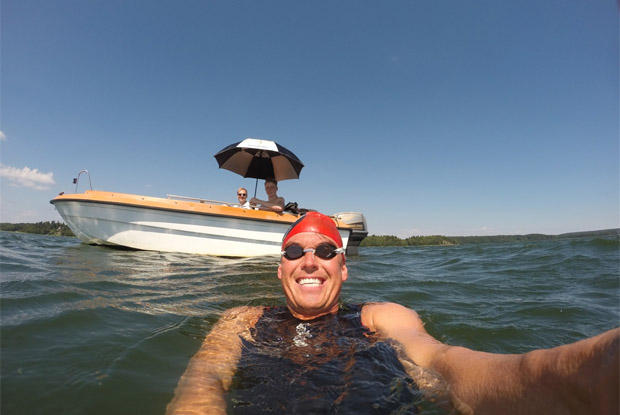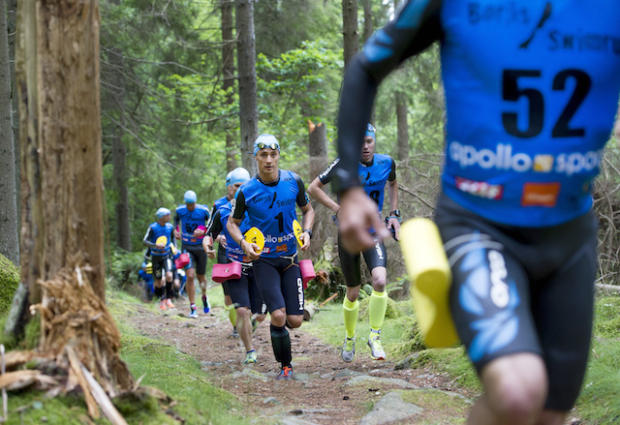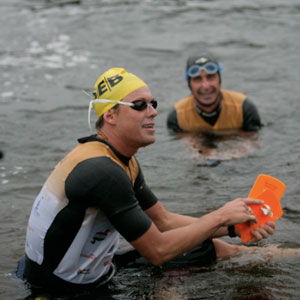Jonas Colting, The King of ÖTILLÖ
Jonas Colting is the do-it-all-man of endurance sports. As a competitive triathlete he compiled wins at Ultraman and numerous long distance races around the world. His exploits outside of triathlon have been even more newsworthy including his Swim Across Sweden in 2014, Swim Around Phuket earlier this year, Cape Epic Stage Race, and his three overall wins and completion of every ÖTILLÖ to date.
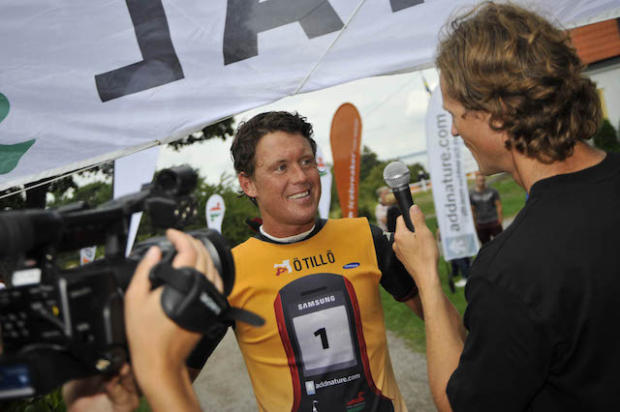
SLOWTWITCH: You are the only person who has competed in each of the past 10 ÖTILLÖ races. How has the race changed from the early years?
JONAS COLTING: You wouldn't believe how much it has changed. Just like first generation triathletes like Dave Scott and Scott Tinley probably look back and go ‘whoa’ over how big triathlon has become, I can appreciate the growth and development of swimrun in a similar way. Granted, swimrun is still a fringe sport and primarily a Swedish and Scandinavian affair, but looking at the growth rate and globalization, it wouldn't surprise me if we have races on all continents in a few years.
For quite a few years, there was only ÖTILLÖ. We didn't even have a name for what kind of sport we were involved in. I used to relate it as an Xterra version of a day long aquathlon in inhospitable conditions. Then other races started popping up and even started selling out. ÖTILLÖ grew, became much more exclusive and fueled this progress. As far as I know we now have a hundred swimrun races in Sweden and there are another hundred races internationally.
The major changes in equipment is obviously the birth of the swimrun wetsuit although I'm amazed at how well traditional triathlon wetsuits have performed with regard to wear and tear as well as just being able to run far in them. It has also helped the rules have changed regarding mandatory equipment.
For the first two editions in 2006 and 2007 we had to wear a life preservative on top of our wetsuit as well as carrying swimming fins, even if we never planned on using them. We actually had to have a backpack for all the junk in the early races. I towed this backpack on a small surfboard during the swims. Race organizers Mats Skott and Michael Lemmel were from adventure racing and must have thought it was possible to sink in a wetsuit as they took safety precautions to an entirely new level. After the race in 2007 a lot of the teams said they wouldn't come back if the equipment rules weren't slimmed down and luckily they listened.
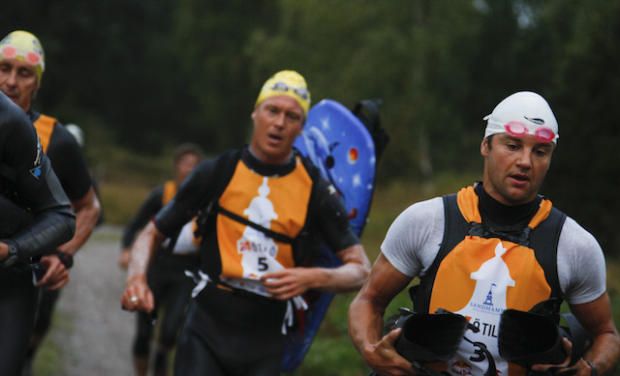
SLOWTWITCH: You are a 3x ÖTILLÖ winner so you know what it is like to race at the pointy end of the race. What does it take now to vie for the win?
COLTING: Just as one-trick ponies could win triathlons in the early days so could triathletes without specific swimrun experience win swimruns early on. As the sport and ÖTILLÖ has evolved over the years the top athletes now do a lot of specific preparation for swimrun. Not only in the sense of getting physically fit for the job but also scouting courses and practicing the in-and-outs of switching between swimming and running with a minimum of momentum loss. The main element often overlooked is swimrun is a team sport. Doing a team sport is different than an individual effort and you need to be in tune with each other throughout the race and preparation.
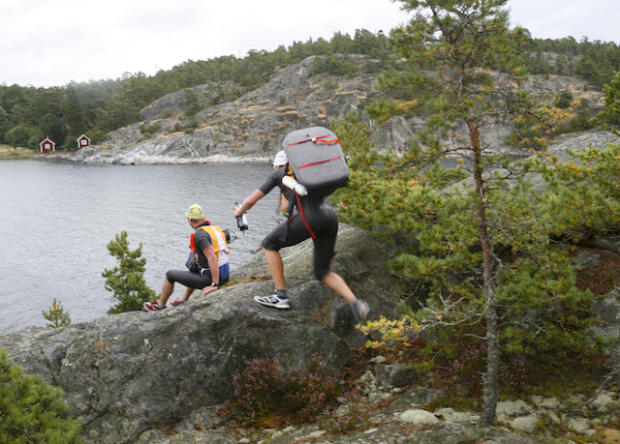
SLOWTWITCH: Do you think the influx of a few big name triathletes into the field will shake things up?
COLTING: It's great to see successful names in triathlon turning to swimrun. Even if they do so after their prime. They add a lot of prestige and color to swimrun and ÖTILLÖ. I met Faris Al-Sultan a few weeks ago when I visited Munich and he was very excited to toe the line in Sandhamn. I met Macca earlier this year and he was entered into the race but I'm still unsure whether or not he'll be racing.
I don't think either of them will be gunning for the win. Faris certainly didn't think so himself. Obviously a great swimmer and runner will always be a great swimmer and runner, but this race brings a context which is completely different from anything else. The biggest challenge will be in handling the different kinds of terrain as well as managing all the treacherous in-and-outs from slippery rocks.
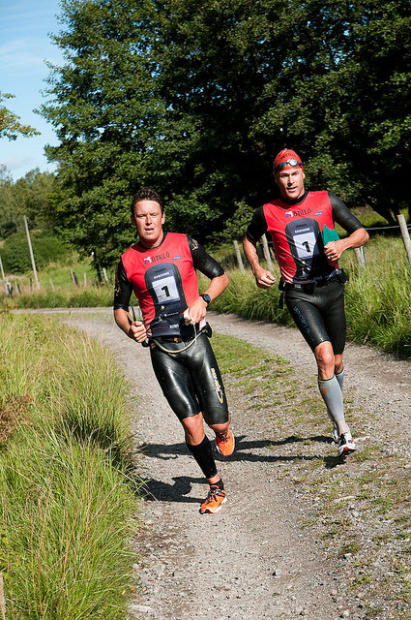
SLOWTWITCH: You have had a busy year of athletic adventures once again. Can you tell us about your adventures?
COLTING: My swim around Phuket Island in Thailand was a great swim! 150 kilometers in eight days. The heat and sun were the biggest obstacles to overcome but we took great precautions starting every stage at dawn as well as being meticulous with our recovery. We drank a lot of fresh coconut. We were freaked out by all the jellyfish during our re-con by boat but in the end there were only a few incidents.
I also finished Trans-Alp MTB stage race. Seven days, 560 kilometers and 18,000 ascending meters. I really enjoy the stage race concept as it adds so much value to the experience. I’m not a very good mountain biker as I’m quite unwilling to take risks so I took it easy going downhill.
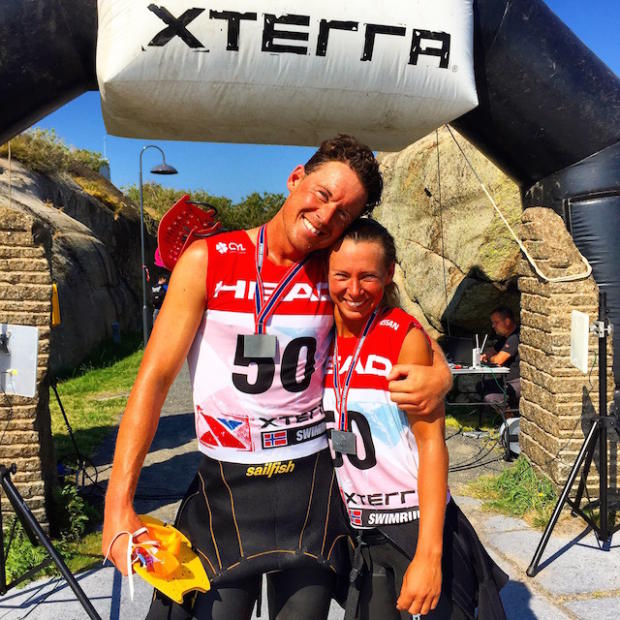
On the triathlon side of things I haven't done a lot of lately more than watching my fiancée Elin race a few times. She did her first 70.3 in July when she finished Jönköping 70.3. I managed to get her an entry to IM Kalmar just six weeks later and she was absolutely thrilled. She had already entered the infamous Rockman Swimrun in Norway which took place only two weeks prior to IM Kalmar. Finishing Rockman she couldn´t walk for two days but on race day in Kalmar she had a great day finishing sixth in her age group and qualifying for Kona.
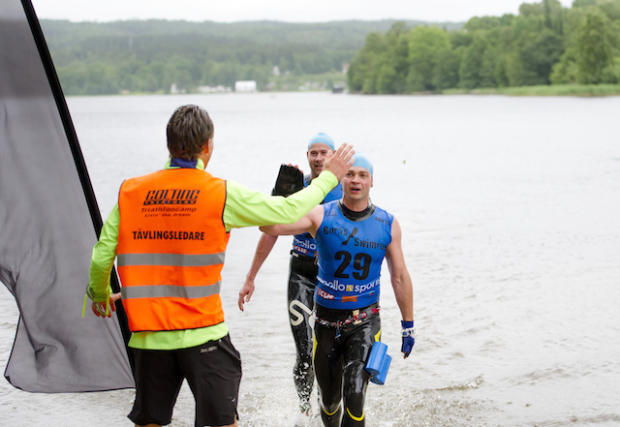
SLOWTWITCH: You have produced your own Swimrun race in your hometown of Borås since 2014. What is the most enjoyable part of the race production side of the sport to you?
COLTING: Our race is 35 kilometers long with 5k of swimming and 30k of running over 27 different parts. Contrary to ÖTILLÖ our race is extremely hilly, almost 1000 ascending meters. It's also set around a big lake and a few smaller ones. The best part of hosting a race like this is watching so many people finish who previously would not have considered anything involving running and certainly not open water swimming. To see the smiles on their faces finishing is by far the greatest reward as a race director.
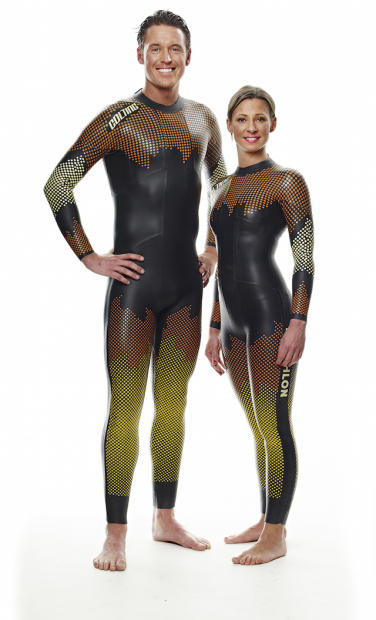
SLOWTWITCH: Can you tell us about the wetsuit line you recently launched?
COLTING: I launched my own brand of wetsuits, named Colting Wetsuits. We have both the traditional wetsuit for triathlon and open water and also for swimrun. Seeing how the interest and demand grew rapidly in Sweden and at the same time there were no Swedish brands, a few business partners and I started from the ground floor with creating the brand. It took 18 months of testing and doing prototypes and we had our first suits out in April. The response has been fabulous which makes me really proud.
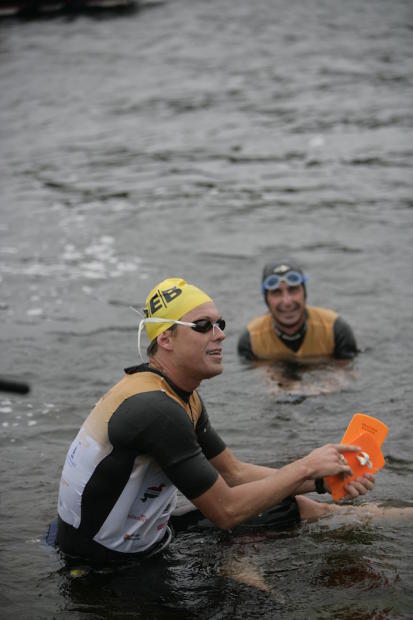
SLOWTWITCH: Anything else you’d like to share with us?
JONAS: Only that I've been in the sport of triathlon since 1990 and in swimrun since 2006 and it´s such a pleasure to see how, in a sense, mainstream they now have become. And I mean mainstream in a good way. The IM-distance race in Kalmar first took place in 1994. I raced it. There were 62 other starters. Triathlon was basically non-existent in Sweden. Now there are 2700 entrants to IM Kalmar and 1500 others race a shorter race earlier the same week. Having been a part of that entire process makes me very proud and I'm humbled by the fact I've been able to make a living from the sport for so long.
On Monday, September 5th, Colting will toe the line at ÖTILLÖ for the 11th straight year, this year teaming up with Elin.


